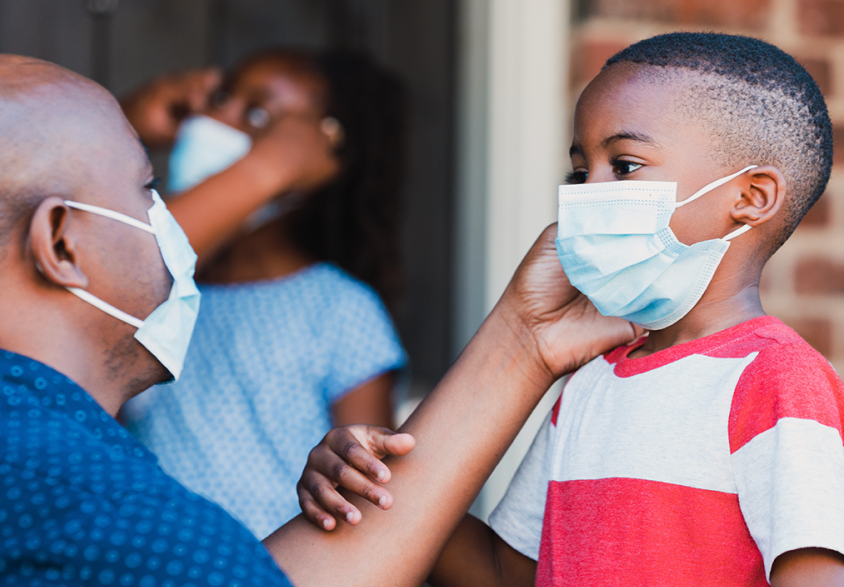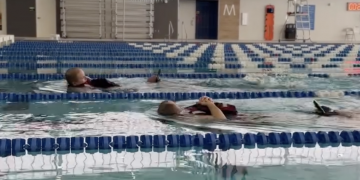Indianapolis, Indiana – The virus surely changed the way we think, how we live our everyday lives and certainly affected our social live, but despite all these and many other things affected by the virus, parents felt safe that the virus was infecting their little children in very low rate.
Even if children got infected with the virus, they usually developed mild or no symptoms at all. But the recent Delta variant of the virus, completely changed the game and the approach to the virus. And now, understandably, parents started to fear how the virus might affect their children and their later development.
The latest data shows that in some states with higher infection rates the virus spreads almost at the same rate to children as the adults. So, what happens the, parents ask.
“COVID is just been annoying due to the fact that people aren’t getting vaccinated and moving forward with it,” said David Walden of Lawrence, and father to two-year-old daughter, Aria.
Just like any other family, Walden says he hopes that the pandemic will end soon so everybody can return to their normal way of life. Walden added that he is more concerned about his daughter’s social development is the Covid-19 continues in a same way like until now.
“I’m just wanting her to be out and about and I don’t want to know four walls,” Walden explained. “I want her to know the open world.”
However, some parents stick to their “vaccine hesitance” beliefs and are not worried if thy children will get in contact with the virus.
This is what Riley Hospital for Children is seeing the current situation right now.
“The numbers over the last few days, you’re talking about 30 to 35 kids coming to the emergency room,” Dr. John Christenson, Medical Director of Infection Prevention at Riley Hospital for Children said. “When you compare that to numbers back in January, probably that same number, you’d probably see it over a week or two.”
They added that the trend is seen everywhere across the country and in some parts and areas, the situation seems to be much worse compared to Indiana.
“We have no clear evidence that the Delta strain or the Delta variant is more severe in children. Expect for it when it comes to numbers. We know that this virus is more transmissible,” Christenson said.
Christenson additionally said that most of the children tested positive on the virus come in the hospital and are released the very same day, usually experiencing mild symptoms. However, despite the fact they experience mils symptoms, they can still transfer to virus to others.
“Probably a lot of our colleagues out in the community who are seeing children in other facilities and also in urgent care centers and other doctors’ offices, so we may just be seeing the tip of the iceberg.”
The most important things to be done are up to the parents who should continue to do what we have been told until, social distancing, wearing masks and washing hands.

















































































